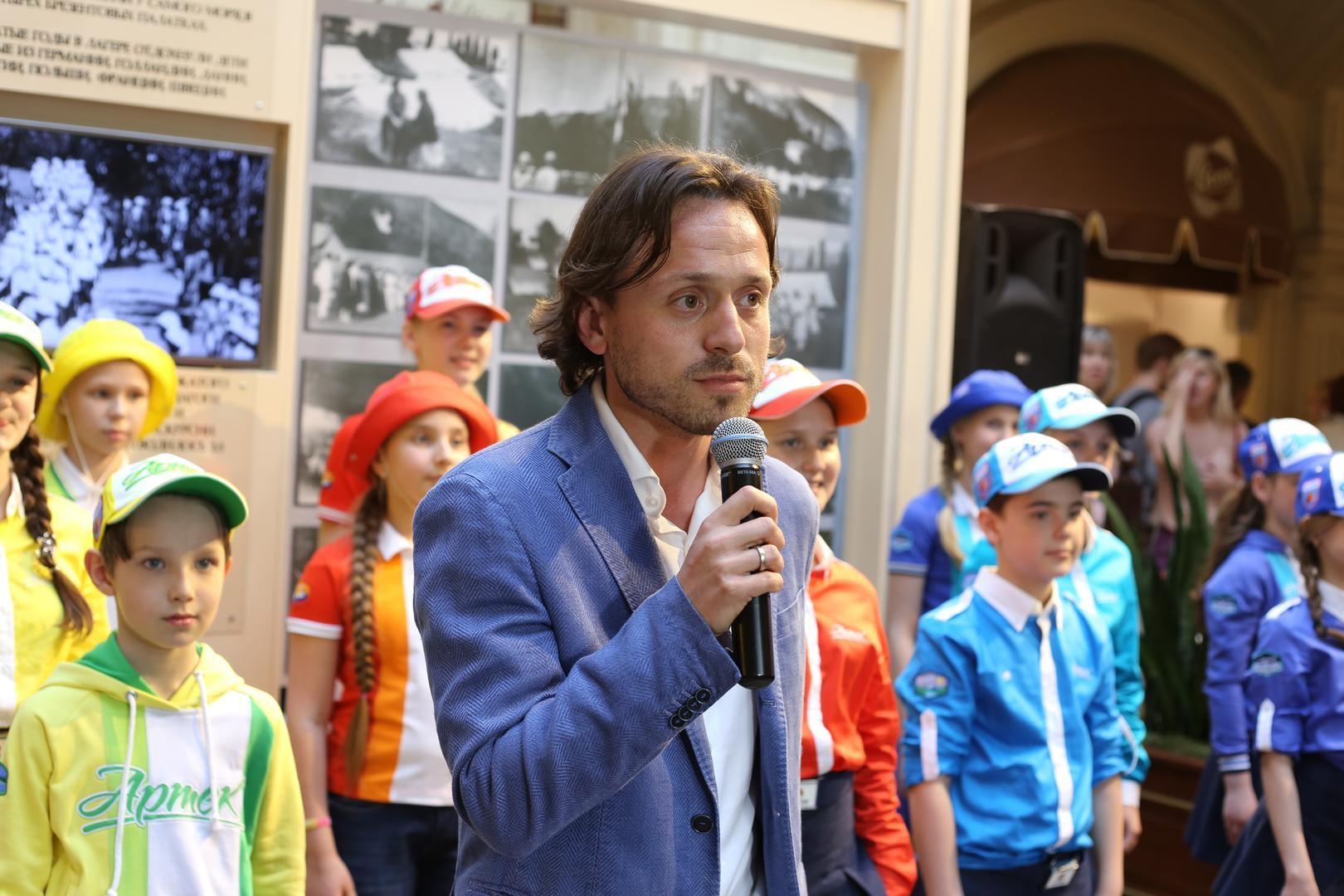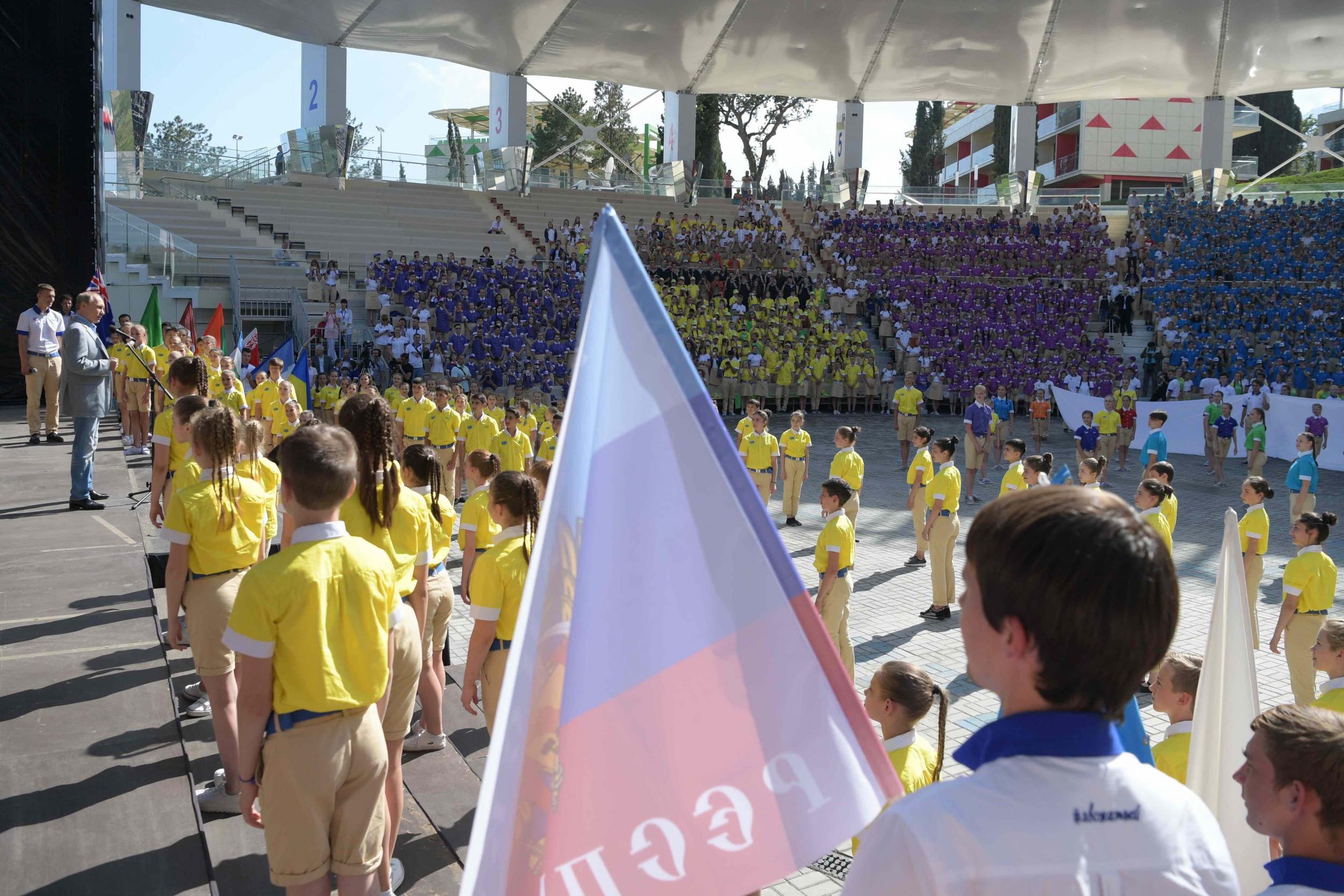How I came to run a small country where all the citizens are children
Once an iconic summer camp for Soviet 'Young Pioneers' on a remote shore of the Black Sea, Artek holds an almost mythical place in Russia's national consciousness

We often have guests visiting us. And it may sound strange, but it isn't rare to see a foreigner among them. Citizens from North and South America, Australia, Eastern and Western Europe, Asia, Africa – we've had guests from around the world. And whoever it is – whether a politician, a public figure or a journalist – they cannot fail to be charmed by Artek.
Once you come to see it, you don’t want to leave. And no matter how difficult the journey may have been to get there, it always feels more difficult to depart. Like the Fox in the fairytale 'The Little Prince', they cry tears of joy and sorrow at the same time.
Perhaps when they see children in their far-away cities and countries they will be reminded of their visit to this place on the map of Crimea called Artek, a place for childhood, where the principles of Antoine de Saint-Exupery's tale are not written on paper but are realised in life. It sounds impossible - but if you think so, I would implore you to visit.
More than three years ago I was offered the chance to become the director of Artek. I was a schoolchild during the years of perestroika and the formation of the Russian nation, when all that came previously was considered incorrect.
There was nothing like Artek in my childhood. I had jeans, sneakers, chewing gum, my father's first car (which was a dream) but little else. But Artek has given back to children the magic of childhood. One eleventh-grade girl told me at Artek this summer: "Prior to this place, I wanted very much to grow up. It seemed to me that when I grew up I could solve all my problems in the same way adults did. And now I understand that I want to remain a child as long as possible. Because at this place I have learned how to be a child."
I have been a teacher, an official, a manager of large federal projects, managed a public organisation and was the Vice Rector of one of Russia's youngest and best higher education institutions – but I have never been the first, or indeed the last, in the hierarchy of decision-making, let alone in an organisation which is the size of a small country, where the citizens are all children. Artek is located in a territory bigger than the size of the Principality of Monaco. It is fully self-sufficient. And this is the world which I now manage.
When I first came here, I saw a holy place, painfully torn to pieces by an absence of understanding in its mission. There were hotels for adults and beer stalls on the beach, the port filled with private boats. Orders of gasoline, supplies and medicine were delivered, but not in full. There were organised smoking areas in the camps themselves and children were able to order food and alcoholic drinks to their rooms.

A lot of people remained in those hard times due to indecision, and a belief in promises. Some could not bear to live any other way. But belief remained. A belief that the laughter and joy of more than 1.5 million children which happened here for the 92 years of the camp’s life will return, restored to its former glory.
During my years of work in the Tver region, I saw a lot of destroyed temples. Time, indifference or evil intention destroyed them. They died in the deserted open spaces of central Russia. And so it was with Artek in 2014.
For three years, we have made what seemed to be impossible happen – we have repaired and built, cleaned and grown, learned and developed, earned and spent. We lived in the world of children and by the words of children, without a moment's break. The needs of children became our core purpose. We have learned to speak in children's language, to think their way, to see through their eyes. It has allowed us to host 3,500 children (because we have so many at every session now at Artek) for a final disco of modern music, to dance the Lezginka dance listening to the cheers from the crowd, to read Kipling's poem "If" in many voices, to overhear the love confession of an American boy to a girl from Lugansk at the Palace Square of Artek in Crimea.
We were the first in the country to receive those who would never be taken anywhere else. We couldn't take everyone, but we did our best. Overcoming fear and misunderstanding – adult habits – we recognised that everyone is worth something in the world, and all people have intrinsic value.
And we have recreated a brand here, with our partners selling the first lots of "Artek Ice Cream" in different countries around the world. Drinking water, juice and many other things will follow.
In a way, it's always been like this here – we just briefly forgot. This is a world of children living outside their normal circumstances and conventions. A world in which they praise and motivate each other towards new victories, without noting shortcomings or trying to weed out failures. A world where they believe in opportunities for everyone and everyone is trusted. Francis Fukuyama wrote about the world of adults, but the world of adults cannot come to exist without there first being a world of children, such as the one we've strived to create in Artek.
We have become pioneers in standards of attitudes towards children – and not only for Russia. Coming here, a child really understands what the fulfilment of his dreams, hopes and desires can mean, and how he can carry this over into adulthood. He is imbued with a sense of his own importance in the world and thus empowered.
It isn't honest to say that things you want are impossible. It isn't honest to be too afraid to voice or pursue your hopes and dreams. It isn't honest to be ashamed of your past and your family's history. It isn't honest to be interested "for show". And there is little honesty in what has been written and published after Artek in the past.
Looking at Artek's children and guests from other countries of the world, you understand that the fears with which they arrive here are not honest, not fair. And they are not afraid because of Artek – they dream of coming to the best summer camp in the world. They are afraid because of sanctions, annexations and other adult circumstances. Yet despite all that, this place exists, and it is impossible to deny the existence of what was, what is and what will be, regardless of the opinions of others. It is possible to close your eyes, of course. But you may see in the dark with your heart open.
Perhaps the famous Russian actor, producer, poet, writer and publicist Leonid Filatov is right, and only the fantastic hero Fedot the Rifleman can achieve what is impossible in a fairytale. In that case, there is a place on the Crimean peninsula where a fairytale lives, and the only sanctions that exist are applied by you, against yourself, if you deprive your children of it.
